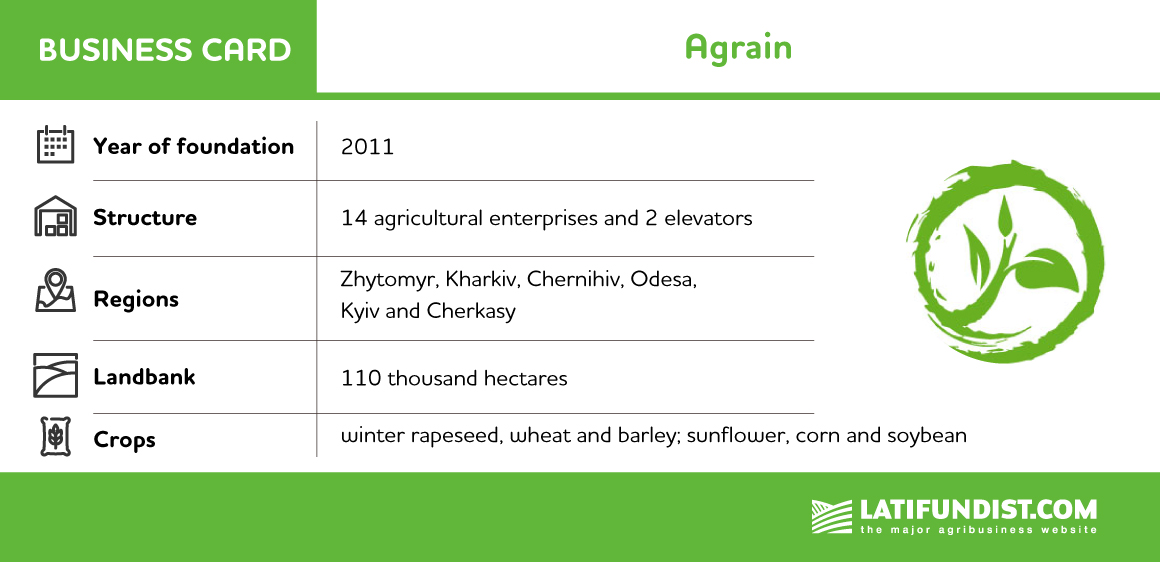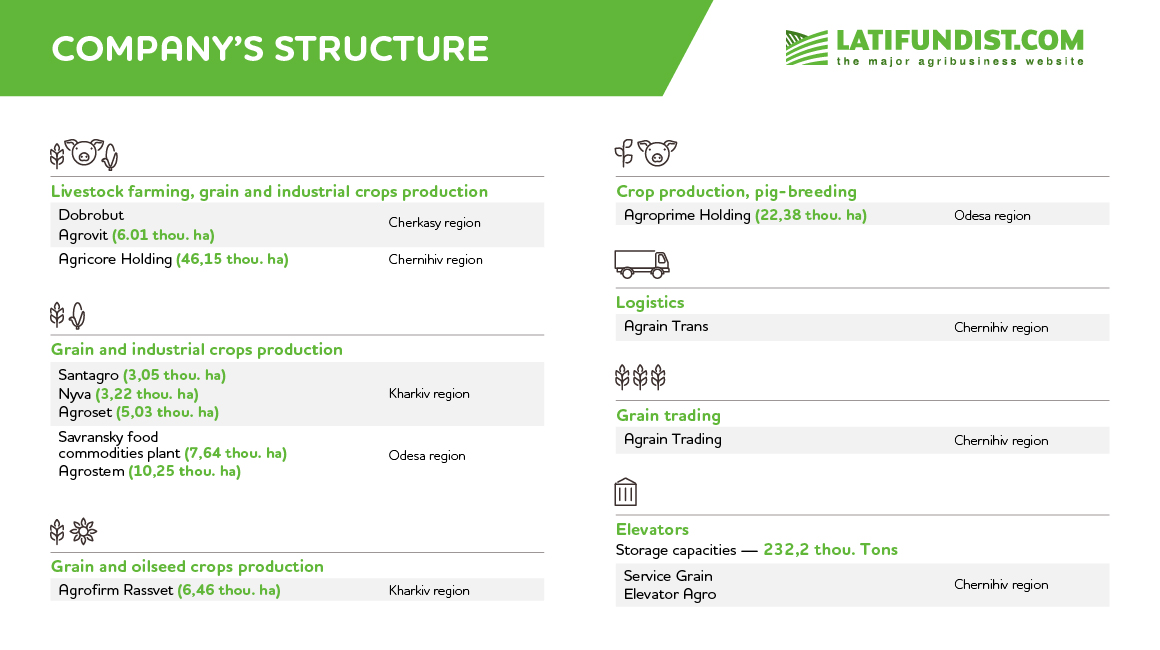Vertical integration includes the delivery of produce to its destination. Therefore, since 2012, the holding has a logistics company
Agrain Trans in its structure. The company has its own grain trucks and provides transportations services for grains and oilseeds. The company operates almost throughout the territory of Ukraine. The base of Agrain Trans is located in Odesa.
Aleksandr Morozov is the head of this business direction.
Agrain Trans operates 42 Scania P400, P420, G400 trucks with Schwarzmüller SK-430, Velton and Schmitz Cargobull SKI-24 grain semitrailers, which enable loading up to 25 tons of sunflower seeds in one trailer due to its large capacity.
A one-time rise per trip is 950 tons. Reliability is the company's main criterion for choosing vehicles since the Ukrainian roads impassibility does not allow being frivolous in this matter. Agrain Trans works with many traders, large and small farmers, as well as intermediaries. Internal and external orders are divided in the ratio of 50/50, but the holding's needs are the first priority. Over the year, Agrain Trans transports about 300 thousand tons by its vehicles.

